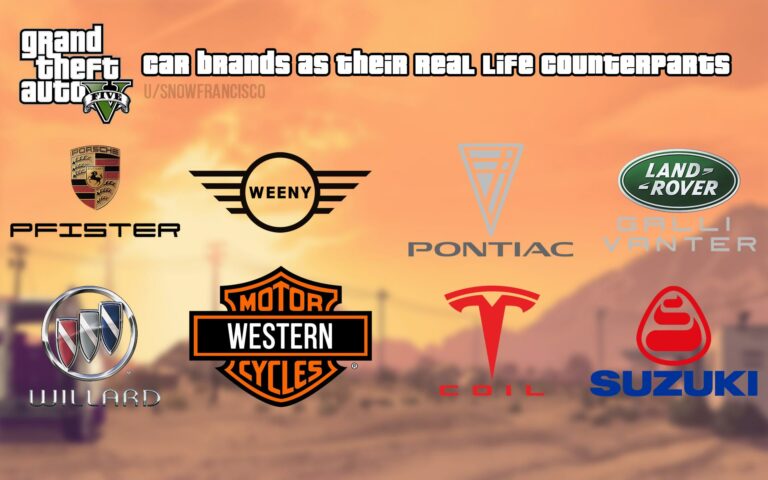Car Hoist Brands: Elevating Your Automotive Endeavors
Car Hoist Brands: Elevating Your Automotive Endeavors cars.truckstrend.com
The world of automotive maintenance, repair, and restoration has been revolutionized by a single, indispensable piece of equipment: the car hoist. More than just a tool for lifting vehicles, a car hoist, or auto lift, is a fundamental investment in safety, efficiency, and ergonomic comfort for anyone working on cars – from professional mechanics in bustling commercial garages to passionate DIY enthusiasts in their home workshops. Choosing the right car hoist is not merely about selecting a model; it’s fundamentally about selecting the right brand. The brand behind your hoist dictates its build quality, safety features, reliability, after-sales support, and ultimately, your peace of mind. In this comprehensive guide, we’ll delve into the critical aspects of car hoist brands, helping you navigate the options and make an informed decision that elevates your automotive endeavors.
Understanding Car Hoists: More Than Just Lifting
Car Hoist Brands: Elevating Your Automotive Endeavors
At its core, a car hoist is a mechanical device designed to raise a vehicle off the ground, providing unobstructed access to its underside for various tasks. This simple function, however, masks a complex interplay of engineering, hydraulics, and safety mechanisms. Whether you’re changing oil, performing intricate transmission work, conducting chassis repairs, or simply detailing the undercarriage, a hoist transforms a back-breaking chore into an accessible and safer operation.
The brand you choose for your car hoist is paramount. A reputable brand signifies a commitment to stringent safety standards, durable materials, innovative design, and reliable performance. Conversely, opting for a lesser-known or unverified brand can lead to compromises in structural integrity, unreliable operation, and a lack of essential safety features, potentially endangering both the vehicle and the operator. It’s an investment where cutting corners can have severe consequences.
Key Factors When Choosing a Car Hoist Brand
Before exploring specific brands, understanding the crucial factors that differentiate them is essential. These considerations will guide your selection process, ensuring the hoist aligns with your specific needs and priorities.
1. Safety Certifications and Compliance
This is non-negotiable. Look for hoists that are certified by recognized safety organizations. In North America, the Automotive Lift Institute (ALI) certification (often displayed as an "ALI Certified" gold label) is the gold standard. ALI-certified lifts have undergone rigorous testing to meet specific safety and performance criteria set by ANSI (American National Standards Institute). Other relevant certifications include CE (for European markets) and ETL. A brand that prioritizes and invests in these certifications is a brand that prioritizes user safety.
2. Lift Capacity
The hoist’s capacity must exceed the weight of the heaviest vehicle you intend to lift. Hoists come in various capacities, typically ranging from 7,000 lbs for passenger cars to over 30,000 lbs for heavy-duty trucks and commercial vehicles. Overloading a hoist is extremely dangerous and can lead to catastrophic failure. Reputable brands clearly state their maximum capacity and adhere to these ratings.

3. Lift Type
Different hoist types cater to different needs, space constraints, and applications. Top brands offer a variety:
- Two-Post Lifts: Most common for repair shops. They lift vehicles by their frame, leaving the wheels and underside accessible. Ideal for tire changes, brake work, suspension, and engine repairs.
- Four-Post Lifts: Excellent for vehicle storage, alignment work, and general maintenance. They lift vehicles by their tires, allowing the vehicle to be driven onto runways. Some models include rolling jacks for wheel-free access.
- Scissor Lifts: Compact and space-saving, these lifts use a scissor-like mechanism. Available in low-rise (for tire and brake work) and mid-rise versions (for more extensive access). Great for home garages with limited ceiling height.
- Portable Lifts: Offer flexibility and can be moved. Examples include low-profile scissor lifts or portable two-post systems like MaxJax.
- In-Ground Lifts: Permanently installed flush with the floor, offering maximum workspace and a clean look. Primarily for professional shops.

4. Power Requirements

Most hoists operate on electric power, typically 110V, 220V (single-phase), or 208V/230V/460V (three-phase) for commercial applications. Ensure your electrical service can support the hoist’s requirements. Reputable brands offer models compatible with common power supplies.
5. Build Quality and Materials
Examine the steel gauge, welding quality, hydraulic components (cylinders, hoses, pumps), cables, and pulleys. High-quality brands use heavier gauge steel, precision-machined parts, and robust hydraulic systems for durability and smooth operation. Look for powder-coated finishes for corrosion resistance.
6. Warranty and Customer Support
A strong warranty reflects a manufacturer’s confidence in their product. Look for brands offering multi-year warranties on structural components and hydraulic systems. Excellent customer service, readily available parts, and a network of certified installers/technicians are vital for long-term satisfaction and minimal downtime.
7. Features and Accessories
Consider additional features like adjustable arm restraints, automatic safety locks, trickle chargers, air and power outlets on the columns, and optional accessories like drip trays or rolling jacks. Leading brands often incorporate user-friendly and safety-enhancing features.
8. Price Point vs. Value
While budget is a factor, prioritize value over the lowest price. A cheaper, uncertified hoist can cost you more in repairs, downtime, and potential safety incidents. Invest in a reputable brand that offers a good balance of features, quality, and support within your budget.
Leading Car Hoist Brands: A Deep Dive
Now, let’s explore some of the most prominent and respected car hoist brands in the market, highlighting their strengths and typical offerings.
1. BendPak
Overview: Arguably the most recognizable name in the automotive lift industry, BendPak is synonymous with quality, innovation, and a vast product line. They cater to a wide spectrum of users, from large commercial repair facilities to serious home enthusiasts.
Strengths: Extensive range of 2-post, 4-post, scissor, and specialty lifts (e.g., parking lifts, motorcycle lifts). Strong emphasis on ALI certification. Known for robust construction, advanced features (e.g., Tru-Metric arm design), and excellent customer support.
Target Audience: Professional shops, high-end home garages, auto enthusiasts.
Notable Models: XPR Series (2-post), HD Series (4-post), QuickJack (portable car lift).
2. Rotary Lift
Overview: A global leader, Rotary Lift is often the preferred choice for large commercial dealerships and heavy-duty truck service centers. They are known for their incredibly robust, high-capacity lifts and cutting-edge technology.
Strengths: Exceptional durability and longevity, high lifting capacities, advanced safety features, superior engineering. Strong focus on productivity and efficiency for professional environments.
Target Audience: Commercial dealerships, fleet maintenance facilities, heavy-duty service centers.
Notable Models: SPOA10 (2-post), SM Series (4-post), various in-ground and parallelogram lifts.
3. Challenger Lifts
Overview: Challenger Lifts has established itself as a strong contender, offering a good balance of quality, features, and value. They are popular among independent repair shops and serious home users looking for a reliable lift without the premium price tag of some top-tier brands.
Strengths: Diverse product line, good build quality, often ALI certified, competitive pricing. Known for user-friendly designs and reliable hydraulic systems.
Target Audience: Independent repair shops, vocational schools, discerning home users.
Notable Models: E-10 (2-post), CL4P7 (4-post).
4. Direct-Lift (by BendPak)
Overview: Direct-Lift is a brand under the BendPak umbrella, designed to offer a more budget-friendly option while still leveraging BendPak’s engineering and quality control. They are a popular choice for home garages and smaller commercial operations.
Strengths: More accessible price point than premium BendPak lines, still benefits from BendPak’s design expertise and support. Generally good value for money for recreational use.
Target Audience: Home garages, hobbyists, small independent shops with budget constraints.
Notable Models: DL9 (2-post), DL9000 (4-post).
5. Atlas Auto Equipment
Overview: Atlas Auto Equipment has gained significant popularity in the DIY and smaller commercial shop market by offering robust and functional lifts at very competitive prices.
Strengths: Excellent value, solid construction for the price point, wide range of 2-post, 4-post, and specialty lifts. Often a go-to for those seeking a durable lift on a tighter budget.
Target Audience: Home mechanics, small repair shops, budget-conscious users.
Notable Models: PV-10P (2-post), 409HP (4-post).
6. MaxJax (by Dannmar/BendPak)
Overview: MaxJax, originally by Dannmar and now integrated with BendPak, stands out for its unique portable 2-post design. It’s specifically engineered for home garages with lower ceiling heights, offering the benefits of a 2-post lift without permanent installation.
Strengths: Portable, low-profile design, ideal for residential garages, ALI certified, good for a variety of vehicle maintenance tasks.
Target Audience: Home garages with limited space/ceiling height, mobile mechanics.
Notable Models: M6 (portable 2-post).
Choosing the Right Hoist Brand for Your Needs: Practical Advice
Making the final decision requires a careful assessment of your specific circumstances:
- For the Professional Shop: Prioritize brands like Rotary Lift, BendPak, or Challenger Lifts. Focus on high cycle rates, heavy-duty construction, immediate parts availability, strong warranties, and, crucially, ALI certification. Downtime costs money, so reliability and rapid support are key.
- For the Serious Home Enthusiast/DIYer: Brands like BendPak, Challenger Lifts, Direct-Lift, Atlas, or MaxJax are excellent choices. Consider your ceiling height, available floor space, and the types of vehicles you’ll be working on. A 4-post lift might be ideal for storage and general maintenance, while a 2-post offers better wheel-free access. A scissor lift or MaxJax could be perfect for space-constrained garages.
- Budgeting Wisely: While it’s tempting to opt for the cheapest option, remember that a car hoist is a long-term investment in safety and efficiency. Allocate a sufficient budget for a reputable, ALI-certified brand. Factor in installation costs, which can be significant if done professionally.
- Installation Considerations: Most heavy-duty lifts require a concrete slab of specific thickness and strength. Consult the manufacturer’s specifications. While some experienced DIYers might tackle installation, professional installation is highly recommended to ensure safety and proper operation, especially for 2-post lifts that require precise anchoring.
Maintenance and Longevity: Protecting Your Investment
Choosing a reputable brand is the first step; proper maintenance is the second. All car hoists, regardless of brand, require regular inspections and care to ensure safe and long-lasting operation.
- Follow Manufacturer Guidelines: Adhere strictly to the brand’s recommended maintenance schedule. This typically includes checking hydraulic fluid levels, inspecting cables and pulleys for wear, lubricating moving parts, and ensuring safety locks engage correctly.
- Regular Inspections: Visually inspect your hoist before each use for any signs of damage, leaks, or unusual wear.
- Genuine Parts: When replacements are needed, use genuine parts from the manufacturer or approved suppliers. Reputable brands make these parts readily available, which is a major advantage over generic alternatives.
- Load Management: Never exceed the hoist’s stated capacity.
- Professional Servicing: Consider annual professional inspections, especially for commercial use, to identify and address potential issues before they become critical.
Potential Challenges and Solutions
Even with the right brand, you might encounter challenges. Anticipating these can help you plan effectively:
- Space Limitations:
- Challenge: Low ceiling height or narrow garage.
- Solution: Opt for a low-profile scissor lift, a portable lift like MaxJax, or a 4-post lift with adjustable height if primarily for storage.
- Power Supply Issues:
- Challenge: Insufficient electrical service for the hoist.
- Solution: Consult an electrician to upgrade your panel or run a dedicated circuit. Choose a hoist model compatible with your existing power (e.g., 110V instead of 220V if only for light duty).
- Installation Complexity:
- Challenge: Lack of expertise or tools for safe installation.
- Solution: Hire a professional hoist installer. Many reputable brands have a network of certified installers.
- Budget Constraints:
- Challenge: Desired hoist exceeds budget.
- Solution: Consider a more entry-level model from a reputable brand (e.g., Direct-Lift, Atlas) rather than a no-name brand. Look for used hoists from reputable brands, but ensure they are inspected and certified before purchase.
Car Hoist Brands: Estimated Price Ranges
It’s important to note that actual prices can vary significantly based on model, capacity, features, dealer, location, installation costs, and ongoing promotions. The table below provides estimated general price ranges for common models from these brands, intended as a guideline.
| Brand | Typical Lift Types | Key Strengths | Target Audience | Estimated Price Range (Common Models) |
|---|---|---|---|---|
| BendPak | 2-post, 4-post, Scissor, Parking | High quality, innovation, vast product range, ALI certified | Professional Shops, High-End Home | $4,000 – $15,000+ |
| Rotary Lift | 2-post, 4-post, In-ground, Heavy-Duty | Extreme durability, heavy-duty capacity, commercial focus | Commercial Dealerships, Fleet Svc. | $6,000 – $30,000+ |
| Challenger Lifts | 2-post, 4-post, Scissor | Good balance of quality & value, diverse models, ALI certified | Independent Shops, Serious Home | $3,500 – $10,000+ |
| Direct-Lift | 2-post, 4-post | Budget-friendly (BendPak quality), reliable | Home Garages, Small Shops | $2,500 – $6,000 |
| Atlas Auto Equipment | 2-post, 4-post, Scissor | Excellent value, robust construction, wide range | Home Mechanics, Small Repair Shops | $2,000 – $7,000 |
| MaxJax | Portable 2-post | Portable, low-ceiling friendly, ALI certified | Home Garages (limited space), Mobile | $3,000 – $4,500 |
Note: Prices are estimates for new equipment and do not include shipping, taxes, or installation costs.
Frequently Asked Questions (FAQ)
Q1: How much does a car hoist typically cost?
A1: The cost varies widely depending on the brand, type (2-post, 4-post, scissor), lift capacity, and features. You can expect to pay anywhere from $2,000 for a basic home-use model to over $30,000 for a heavy-duty commercial lift. Installation and shipping costs are usually extra.
Q2: What’s the main difference between a 2-post and a 4-post hoist?
A2: A 2-post lift lifts the vehicle by its frame, leaving the wheels and undercarriage completely free, making it ideal for tire work, brakes, suspension, and engine/transmission removal. A 4-post lift lifts the vehicle by its tires on runways, making it great for vehicle storage, alignments, and general maintenance where wheel-free access isn’t constantly needed.
Q3: Do I need a special concrete slab for a car hoist?
A3: Yes, most 2-post and heavy-duty 4-post lifts require a concrete slab of a specific thickness (usually 4-6 inches) and strength (typically 3,000 PSI or more). Consult the hoist manufacturer’s specifications for precise requirements, as an inadequate slab can lead to catastrophic failure.
Q4: What does "ALI Certified" mean, and why is it important?
A4: ALI Certified means the hoist has been tested by the Automotive Lift Institute (ALI) and meets or exceeds the safety and performance standards set by ANSI (American National Standards Institute). It’s crucial because it ensures the lift is designed and manufactured to rigorous safety standards, providing peace of mind for the operator.
Q5: Can I install a car hoist myself?
A5: While some mechanically inclined individuals might attempt DIY installation, especially for simpler 4-post lifts, professional installation is highly recommended for safety. 2-post lifts, in particular, require precise anchoring and structural integrity that is best handled by experienced installers to ensure proper and safe operation.
Q6: Are portable car hoists safe and effective?
A6: Yes, reputable portable hoists like the MaxJax are designed with safety in mind and are effective for their intended use. They are often ALI certified and provide a good solution for home garages with limited space or ceiling height, offering more access than floor jacks alone. Always follow the manufacturer’s safety guidelines.
Conclusion
Choosing a car hoist is a significant decision, one that directly impacts your safety, efficiency, and the quality of your automotive work. While the initial investment might seem substantial, opting for a reputable brand is an investment in reliability, durability, and peace of mind. By carefully considering factors like safety certifications, lift type, capacity, and the brand’s reputation for quality and support, you can confidently select a car hoist that will serve you well for years to come, truly elevating your automotive endeavors from the ground up.





